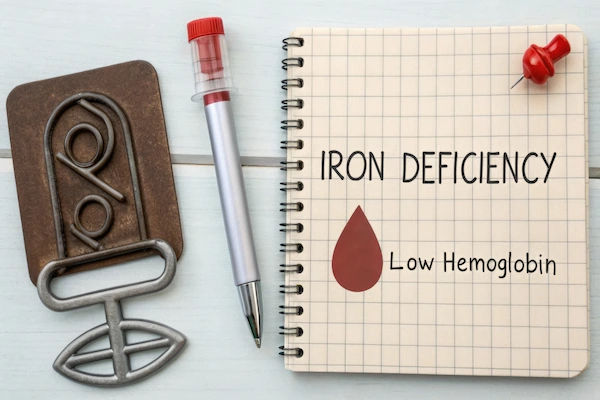Mounjaro vs Zepbound: Key Differences, Uses, and Side Effects Explained
Compare Mounjaro vs Zepbound: uses, dosing, side effects, and who should take each. Clear guide to this diabetes medication and weight-loss therapy.


Introduction
If you’re comparing Mounjaro vs Zepbound, you’re likely seeing both names everywhere—and for good reason. These once-weekly injections have changed how we manage type 2 diabetes and obesity. Monjaro (tirzepatide) is a diabetes medication that also helps with weight loss, while Zepbound (also tirzepatide) is approved specifically for chronic weight management. Understanding the similarities and differences helps you and your clinician choose the right option for your health goals.
Quick take: Mounjaro vs Zepbound at a glance
Active ingredient: Both are tirzepatide, a dual GIP/GLP-1 receptor agonist.
Main use:
- Mounjaro: Approved to improve blood sugar in adults with type 2 diabetes.
- Zepbound: Approved for chronic weight management in adults with obesity or overweight plus a weight-related condition.
- Dosing: Both are once-weekly injections with gradual dose increases.
- Side effects: Largely the same because they share the same medicine; most are gastrointestinal and often lessen over time.
- Choosing between them: Your primary goal (blood sugar vs weight management), medical history, and insurance coverage often guide the decision.
What are Mounjaro and Zepbound?
Mounjaro and Zepbound both contain tirzepatide, a medicine that mimics two natural gut hormones—GIP and GLP-1. These hormones help:
- The pancreas release insulin when blood sugar rises
- Reduce glucagon (a hormone that increases blood sugar)
- Slow stomach emptying, helping you feel full longer
- Reduce appetite
Because they are the same active ingredient, much of the clinical profile overlaps. The key distinction is the approved indication and how clinicians typically use each brand.
Consult Top Specialists
Who are they for?
Monjaro (for type 2 diabetes)
- Approved use: To improve blood sugar control in adults with type 2 diabetes, alongside a healthy diet and physical activity.
- May be used alone or with other diabetes medicines (for example, metformin, insulin, or sulfonylureas). If used with insulin or certain pills, your clinician may adjust doses to reduce low blood sugar risk.
Zepbound (for chronic weight management)
Approved use: For adults with:
- Body mass index (BMI) ≥30 (obesity), or
- BMI ≥27 (overweight) with at least one weight-related condition (such as high blood pressure, high cholesterol, or type 2 diabetes)
- Always paired with a reduced-calorie diet and increased physical activity.
Important: Neither medicine is a substitute for lifestyle changes. They work best alongside nutrition, movement, sleep, and medical follow-up.
How they’re taken: dosing, titration, and tips
Both medicines come as once-weekly, single-use, prefilled injection pens. You inject under the skin (abdomen, thigh, or upper arm). Rotate injection sites to reduce irritation. Use on the same day each week.
Typical titration
- Start: 2.5 mg once weekly for 4 weeks (a “starter” dose to help your body adjust)
Increase to: 5 mg once weekly - Then, if needed and tolerated, increase by 2.5 mg every 4 weeks to 7.5 mg, 10 mg, 12.5 mg, and up to 15 mg once weekly
Your prescriber will tailor the dose based on blood sugar targets (for Mounjaro), weight response (for Zepbound), and side effects. Not everyone needs the maximum dose.
Missed dose
- If you miss a dose, take it as soon as you remember within 4 days (96 hours) after the missed dose.
- If more than 4 days have passed, skip the missed dose and take your next dose on the regularly scheduled day.
- Do not take two doses at once.
Storage and handling
- Refrigerate pens until use.
- Check the label and expiration date.
- Let a cold pen come to room temperature before injecting to reduce discomfort.
- Do not use it if the solution is discolored or contains particles.
How effective are they?
Because Mounjaro and Zepbound are the same medication, their core effects are similar, with the main difference being treatment goals.
Blood sugar control (Mounjaro):
- Tirzepatide can significantly lower A1C and fasting/post-meal glucose in adults with type 2 diabetes.
- Many people also see meaningful weight loss, which further supports blood sugar control.
Weight management (Zepbound):
- In clinical trials, tirzepatide led to substantial average weight loss when combined with a healthy diet and activity.
- People without diabetes who take Zepbound usually do not experience low blood sugar unless they are on other medicines that lower glucose.
Common side effects and safety considerations
Most side effects are gastrointestinal and are more likely during dose increases. They often ease as your body adapts.
Common side effects:
- Nausea
- Diarrhea
- Vomiting
- Constipation
- Abdominal pain
- Decreased appetite
- Indigestion or heartburn
- Injection site reactions
- Fatigue or burping
Serious but less common side effects:
- Pancreatitis (sudden severe abdominal pain, sometimes with vomiting)
- Gallbladder problems (gallstones, gallbladder inflammation)
- Kidney problems, especially if dehydration occurs from vomiting/diarrhea
- Allergic reactions (rash, swelling, trouble breathing)
- Possible worsening of diabetic eye disease if blood sugar improves very quickly—tell your eye doctor you’re starting therapy
- Hypoglycemia (low blood sugar) mainly when used with insulin or sulfonylureas; your prescriber may lower those doses
Boxed warning and who should not use these medicines:
- Do not use it if you or a family member has a history of medullary thyroid carcinoma (MTC) or if you have Multiple Endocrine Neoplasia syndrome type 2 (MEN2).
- Not recommended during pregnancy; weight-loss medicines should not be used during pregnancy, and good glucose control in pregnancy requires a different plan.
- Discuss if you have a history of pancreatitis or severe gastrointestinal disease.
When to call your clinician right away?
- Signs of pancreatitis: severe, persistent abdominal pain (with or without vomiting)
- Signs of gallbladder problems: right upper belly pain, fever, jaundice, clay-colored stools
- Signs of an allergic reaction: hives, facial swelling, breathing trouble
- Ongoing vomiting/diarrhea with signs of dehydration (dizziness, reduced urination)
Drug interactions and precautions
- Other diabetes medicines: Using tirzepatide with insulin or sulfonylureas can increase the risk of low blood sugar. Your clinician may reduce those doses and teach you how to recognize and treat hypoglycemia.
- Oral contraceptives: Tirzepatide can slow stomach emptying and may reduce absorption of birth control pills, especially when starting or increasing doses. Consider a non-oral or backup method for 4 weeks after starting and for 4 weeks after each dose increase; discuss options with your clinician.
- Other oral medicines: Slower gastric emptying may affect how some medicines are absorbed. Ask your pharmacist if you have time-sensitive medicines.
- Alcohol: Can increase risk of low blood sugar (if you have diabetes) and stomach upset—use caution.
Mounjaro vs Zepbound: which should you choose?
Both options are evidence-based and effective. The right choice depends on your medical profile and goals.
Consider Mounjaro if:
- Your primary goal is improving blood sugar in type 2 diabetes.
- You’re already on diabetes medication and need better A1C control with added weight benefits.
Consider Zepbound if:
- Your primary goal is weight management.
- You meet criteria for chronic weight management (BMI thresholds, with or without related conditions).
- You do not need additional glucose lowering, or you do not have diabetes.
Practical points to discuss with your clinician:
- Your health goals: blood sugar targets, weight goals, cardiovascular risk factors
- Current medications: especially insulin, sulfonylureas, and birth control pills
- Side effect tolerance and dose escalation pace
- Cost and insurance coverage (these vary widely by plan and location)
- Follow-up: schedule check-ins for dose adjustments and lab monitoring
Consult Top Specialists
Consult Top Specialists

Dr. Rajib Ghose
General Physician/ Internal Medicine Specialist
25 Years • MBBS
East Midnapore
VIVEKANANDA SEBA SADAN, East Midnapore

Dr. Rohit Basu
General Practitioner
8 Years • MBBS, DNB (General surgery)
East Midnapore
VIVEKANANDA SEBA SADAN, East Midnapore

Dr. Uddalak Chakraborty
Neurologist
8 Years • MBBS,MD(GENL. MED.),DM(NEUROLOGY)
Kolkata
VDC Clinic, Kolkata
(25+ Patients)

Dr. Ishita Mandal
General Surgeon
7 Years • MBBS(hons.), MS(general surgery), General and laparoscopic surgeon
Kolkata
VDC Clinic, Kolkata

Dr Aakash Andgi
General Physician/ Internal Medicine Specialist
9 Years • MBBS MD
Bengaluru
Apollo Clinic, JP nagar, Bengaluru
Consult Top Specialists

Dr. Rajib Ghose
General Physician/ Internal Medicine Specialist
25 Years • MBBS
East Midnapore
VIVEKANANDA SEBA SADAN, East Midnapore

Dr. Rohit Basu
General Practitioner
8 Years • MBBS, DNB (General surgery)
East Midnapore
VIVEKANANDA SEBA SADAN, East Midnapore

Dr. Uddalak Chakraborty
Neurologist
8 Years • MBBS,MD(GENL. MED.),DM(NEUROLOGY)
Kolkata
VDC Clinic, Kolkata
(25+ Patients)

Dr. Ishita Mandal
General Surgeon
7 Years • MBBS(hons.), MS(general surgery), General and laparoscopic surgeon
Kolkata
VDC Clinic, Kolkata

Dr Aakash Andgi
General Physician/ Internal Medicine Specialist
9 Years • MBBS MD
Bengaluru
Apollo Clinic, JP nagar, Bengaluru
More articles from General Medical Consultation
Frequently Asked Questions
Are Mounjaro and Zepbound the same drug?
Yes. Both contain tirzepatide. The main difference is what they are approved to treat: Monjaro is approved for type 2 diabetes; Zepbound is approved for chronic weight management.
Is tirzepatide a diabetes medication or a weight-loss drug?
It’s both, depending on the brand and indication. Mounjaro is a diabetes medication that improves blood sugar, while Zepbound is used for chronic weight management. The same active ingredient drives both effects.
Can someone with type 2 diabetes use Zepbound?
Possibly. Some people with type 2 diabetes who meet weight-management criteria may use Zepbound, but clinicians often choose Monjaro to prioritize glucose control. Your provider will help decide based on your goals, A1C, and insurance coverage.
How long do I need to take it?
These medicines are meant for long-term use, similar to other chronic-condition treatments. If you stop, weight can return and blood sugar can rise again. Ongoing lifestyle changes and regular medical follow-up are key.
What if I’m planning a pregnancy?
Do not use weight-loss medications during pregnancy. If you are planning to become pregnant, talk with your clinician about when to stop tirzepatide and how to manage blood sugar or weight safely before and during pregnancy. Use effective contraception, and note the interaction with oral contraceptives during dose changes.




